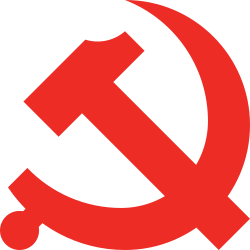| 中央科技委员会 | |
 | |
| Agency overview | |
|---|---|
| Formed | March 2023 |
| Type | Policy coordination and consultation body |
| Jurisdiction | Chinese Communist Party |
| Headquarters | Beijing |
| Agency executives |
|
| Parent agency | Central Committee of the Chinese Communist Party |
| Central Science and Technology Commission | |||||||
|---|---|---|---|---|---|---|---|
| Simplified Chinese | 中央科技委员会 | ||||||
| |||||||
The Central Science and Technology Commission (CSTC) is a commission of the Central Committee of the Chinese Communist Party (CCP) that supervises and coordinates science and technology related policymaking across ministries,agencies,research institutes and industry.